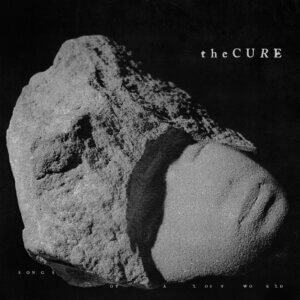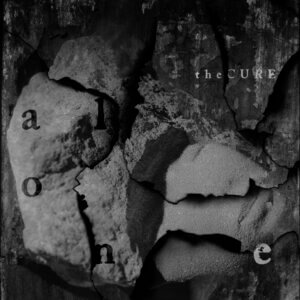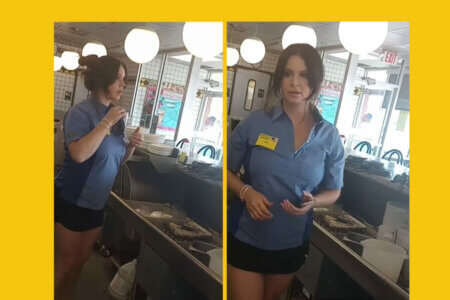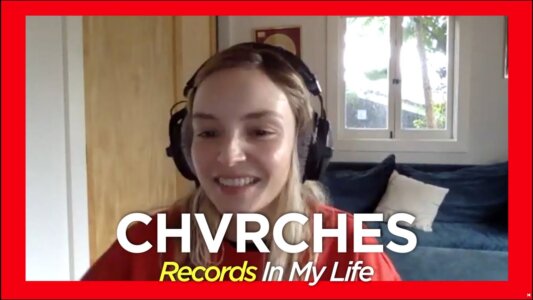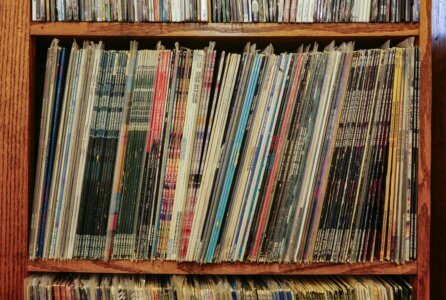
8.6
Songs Of A Lost World
The Cure
With an illustrious career spanning six decades, there are few bands that wield a catalogue as decorated and as influential as The Cure. Since 1978, the band has bottled angst and desperation into expansive refrains of melancholia, garnishing their releases with bite-sized radio-worms that continue to mend broken hearts and top charts. The words “Cure-like” conjure twinkling guitar riffs and shimmery synths, all anchored by lead singer Robert Smith’s signature poetry and emotive wobble. The Cure’s sound is so instantly recognizable that they’ve practically invented their own genre — the opus of entire playlist algorithms branching out from a musical root ball so singularly distinct and intricately woven, yet delicately bound along the tenuous tether between anxiety and ecstasy.
Lead singer Robert Smith has for years been a man outside of time — faithfully consistent to his forty-year younger self and signature dishevelled hairstyle as if not a day had passed. Perhaps even more impressively, Smith’s ineffable voice has been preserved as raw and as anguished as ever. His personality looms as large as his legacy — Smith seems somehow crafted for today and yesterday in equal measure. Between scathing critiques of UK contemporary sadboy Morrissey, to his now legendary quick-witted “By the sounds of it, no” response on the 2019 Rock N’ Roll Hall of fame induction, Smith has repeatedly proven foil to the expectations of sugary stardom that follow mainstream pop success.
It’s no surprise that we have arrived at this moment — Songs of a Lost World is a tense, heavy, and mercilessly bleak offering. There are no radio-ready bubblegum hooks here: instead, an austere and polished emotional oblivion, wrought from ceaseless self-analysis (and meta-analysis) of Smith’s own grief. Written, composed, and arranged entirely by Smith, the album oscillates between writhing, inescapable despair and doomer lamentations, leaving very little room for reprieve. Foreboding guitars crunch along with industrial malice, spacious drums echo into the darkness, sparse pianos dance mournfully along minor keys, and razor-sharp synths slice through the mist like laser beams.
Clocking in at just over 49 minutes and eight tracks long, Songs of a Lost World lingers on extended instrumental intros and outros, letting each sonic landscape expand before Smith’s desolate interjections. Early album highlight “And Nothing Is Forever” cuts this tension briefly — a hopeful piano progression meets dreamy pads and the band’s signature chimes swim alongside a spirited and uplifting string section. It’s a refreshing gasp after the oppressive album opener “Alone,” even if the subject matter is also about death. Yet, this plaintive reverie quickly disintegrates with “A Fragile Thing,” opening aptly with a sample of their signature chimes played in reverse. This dichotomy between bitter and sweet feels quintessential to the band; it’s also when The Cure is at their best — at one moment soaring and the next wilting — simultaneously in bloom and dying.
Songs of a Lost World is certainly more intent on exploring the latter. Lyrically, Smith deals extensively in the concept of absolutes: the end, all, every, never, nothing, forever. There is a finality to Smith’s thematic choice of words, but it is in the delivery that the urgency and desperation can really be felt as he wrestles with regret, grief, ageing, and humanity’s futile nature. As standalone poetry, his lyrics are as sharp and as poignant as ever. Smith deftly plays with imagery, content with utter discontent and drowning in some of his most nihilistic lines to date, while occasionally nodding to the band’s earliest catalogue. “Staring down the barrel of the same worn gun” sings Smith on “Drone:Nodrone,” a direct reference to the band’s controversial and misunderstood first single, 1978’s “Killing an Arab,” an anti-war lament based on Albert Camus’ novel The Stranger. It’s an apt parallel to the present day, and a key illustration of Smith’s consistent and cyclical sense of doom. “No way out of this / No way for us to find peace” he cries on “Warsong.” It’s through this sense of hopelessness and despair that Smith cleverly draws parallels between the heartbreak of a relationship with the heartbreak of simply being alive today. It becomes increasingly difficult to tell the difference between the source of these complex griefs — for Smith, it always has been.
Those seeking more “Curepop” radio hits of yesteryear need look no further than their expansive catalogue. Your favourite song by The Cure was already written, it’s already saved to your streaming platform of choice or resting on wax in a record sleeve on the shelf. Songs of a Lost World may not receive those accolades, playlist adds, or Greatest Hits repressings, and Smith remains faithfully indifferent to the hollow rewards of commercial success. What the album does achieve is something wholly different — a raw, tortured, and intricately gorgeous singular vision — and arguably Smith’s most honest and impactful lyrics to date.
It’s fitting that Janez Pirnat’s sculpture, Bagatelle, is featured on the cover of Songs of a Lost World. Is all this suffering a simple trifle as the sculpture’s title suggests, or is it something profound and timeless? It’s a question The Cure has always posed to the listener, and it’s in this philosophical purgatory that Smith and his bandmates have created music for 46 years, regardless of the interpretations. In his own words:
“Kinda strange it takes this long to get misunderstood.”
Order Songs From A Lost World HERE
Latest Reviews
Tracks
Advertisement
Looking for something new to listen to?
Sign up to our all-new newsletter for top-notch reviews, news, videos and playlists.





